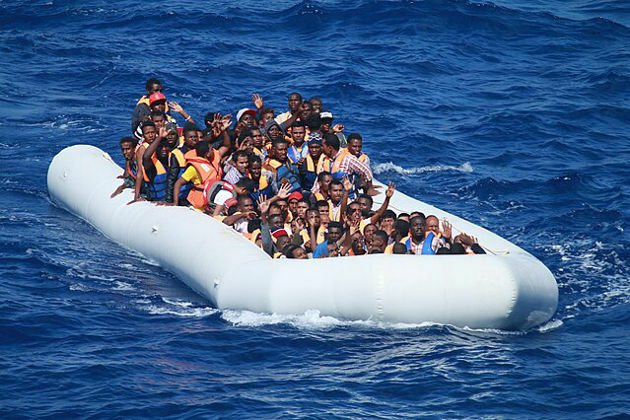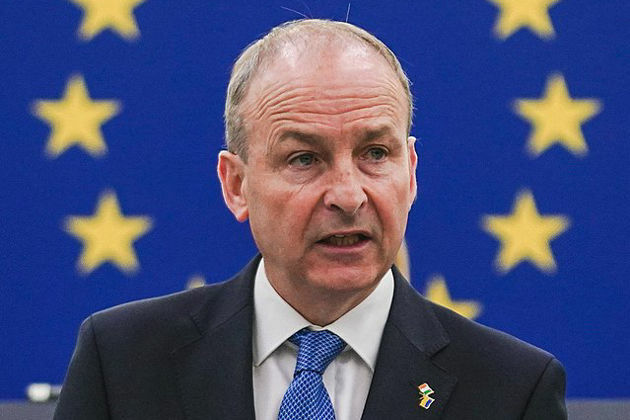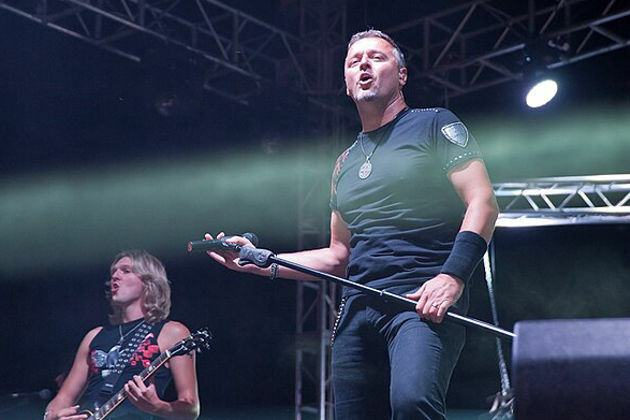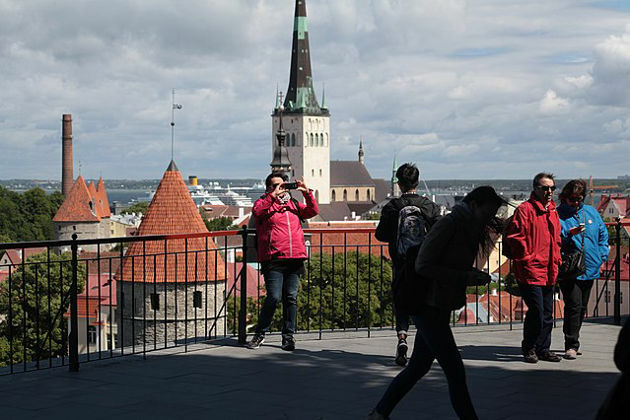It's time to prepare for the post-American age
RT.com
02 Jan 2022, 23:42 GMT+10
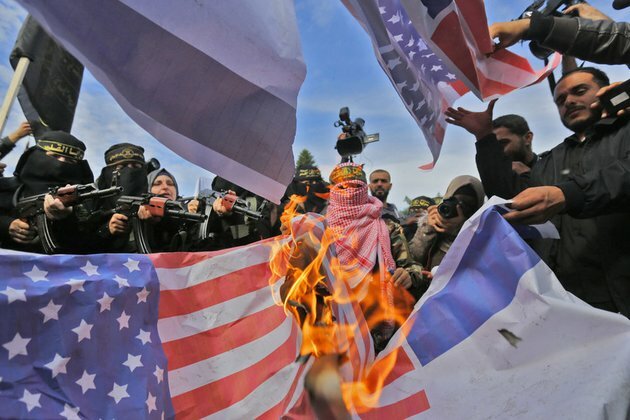
Washington's role in the world is diminishing. What comes next?
Has American dominance across global foreign policy, finance, and military affairs been a source of stability or conflict? Some believe Washington's status as the last great power has been a force for good. Others disagree.
Maintaining its hegemony has demanded that Washington divide the world into marginalised adversaries and dependent allies. NATO's supremacy in Europe was seen by many of the West's leading lights as having created a lasting peace on the continent. At the same time though, it has also been the main source of conflict as the bloc expanded towards Russian borders.
We are now living in an age when that American dominance is coming to an end, and its security guarantees are losing their credibility. If a unipolar world order reduced the prospect of conflict, will previously dormant forces be unleashed as vulnerable states are overwhelmed by their aggressors? Alternatively, though, will stalemates and ceasefires be longer lasting as nations previously emboldened by US backing are forced to find lasting solutions with their adversaries, rather than languishing behind Washington's protection?
When American promises don't matter any more
The US was, understandably, hesitant to admit defeat and leave Afghanistan as it would cause a "credibility crisis." Its allies would no longer be able to base their foreign policy on the assumption of its protection and collective hegemony, and they would have to pursue an independent foreign policy and compromise with their adversaries. American power would decline, due to a diminishing ability to exert influence over its dependent allies, and to marginalise its adversaries.
If Ukraine and Taiwan did not have full faith that the US would offer them protection, then their positions as Washington's frontlines against Russia and China would not be tenable and they would have to seek peace with their adversaries. Without steadfast US support, Ukraine would have to abide by the Minsk Peace Agreement, and Taiwan would need to halt its push for secession from China.
The failed US pursuit of regime change in Syria has resulted in both the Arabs and Turkey moving gradually towards reconciliation and a workable peace with Damascus. American efforts to reach an agreement with Iran, and the failure to decide the outcome of the conflict in Yemen, has similarly incentivised Saudi Arabia to re-establish diplomatic ties with Tehran, and paved the way for negotiations on improving bilateral relations and ending the war in Yemen.
The EU is also coming to terms with the consequences of US decline. In May 2017, German Chancellor Angela Merkel argued that "The times when we could fully rely on others have passed us by a little bit, that's what I've experienced in recent days... I can only say: We Europeans really have to take our fates in our own hands."
The EU's principal approach is now one of "strategic autonomy," which could be expressed more honestly as "autonomy from the US." Without the support of Washington, Brussels is not able to construct a Europe without, and thus inevitably against, Russia. There is growing pressure to do a deal and reach a much-delayed post-Cold War settlement with Moscow that lays the foundation for pan-European security.
Europe's security collapse
Towards the end of the Cold War, Soviet premier Mikhail Gorbachev warned his American counterpart that hawks in both Washington and Moscow would resist peace as it would undermine the dominant position of both the US and the USSR. Conflict, they believed, was good - the intense military rivalry had created security dependence, which ensured that their allies remained obedient.
Indeed, the hawks in Washington warned against Gorbachev's "peace offensive" as demilitarising and improving relations would reduce security dependence and divide the Western alliance. The dilemma of US hegemony versus security resolved itself with the collapse of the Soviet Union, as the Americans no longer had to demilitarise Europe to secure peace - they could do whatever they wanted with little opposition. And so, the collective defence against the Soviets was replaced with collective hegemony for states who were prepared to bandwagon behind the US.
After the Cold War, the West initially signed up for several pan-European security agreements. The Charter of Paris for a New Europe in 1990, the Budapest Memorandum in 1994 and the Istanbul Document in 1999 all committed to the principle of "indivisible security," which meant "They will not strengthen their security at the expense of the security of other States."
All of these pan-European security agreements were subsequently violated by the pursuit of a hegemonic peace, with the West insisting that NATO should monopolise security. The language shifted from "indivisible security" to the "freedom" to expand the bloc. The US also began to dismantle other pan-European security agreements such as the NATO-Russia Founding Act of 1997, the Anti-Ballistic Missile Treaty of 1972, the Intermediate-Range Nuclear Forces Treaty of 1987, and other agreements that could constrain the Americans. Even international law in accordance with the UN Charter is marginalised by seeking alternative legitimacy under the Orwellian concept of the "rules-based international order."
Europe is now in a precarious situation as the pan-European security agreements have been dismantled and there is no hegemony to ensure stability and order. The first instinct has been consistent with the hegemonic order - use threats and ultimatums to make Russia accept the dictates of NATO. However, in the absence of hegemony, the Europeans are only isolating themselves. Russia is deploying increasingly advanced weaponry and rapidly reducing its economic, technological, and financial reliance on the West by enhancing its economic connectivity with the East. The efforts by the US, Ukraine, and Poland to sabotage Nord Stream 2 will similarly result in European industries becoming less competitive, as cheap Russian gas goes to Asia instead.
The West could previously dismiss or ignore Moscow when it suggested it could join NATO, proposing a new European security architecture in 2008, and a Europe from Lisbon to Vladivostok in 2010. However, this time it is different. Russia faces an existential threat with NATO expansion into Ukraine, and Russia has the economic and military means to balance Western unilateralism.
Western capitals are grudgingly coming to terms with the end of hegemony and unilateralism, and the subsequent need to restore agreement on pan-European security. Moscow has now demanded an end to the era of NATO hegemony and a return to the principle of indivisible security. The Kremlin appears to be planning for an age where America matters less. How long will it be before the rest of the world starts to do the same?
The statements, views and opinions expressed in this column are solely those of the author and do not necessarily represent those of RT.
(RT.com)
 Share
Share
 Tweet
Tweet
 Share
Share
 Flip
Flip
 Email
Email
Watch latest videos
Subscribe and Follow
Get a daily dose of Irish Sun news through our daily email, its complimentary and keeps you fully up to date with world and business news as well.
News RELEASES
Publish news of your business, community or sports group, personnel appointments, major event and more by submitting a news release to Irish Sun.
More InformationInternational
SectionGaza War sucking life out of an Israeli generation
In the past month alone, 23 Israeli soldiers have been killed in Gaza—three more than the number of remaining living hostages held...
Faulty IT system at heart of UK Post Office scandal, says report
LONDON, U.K.: At least 13 people are believed to have taken their own lives as a result of the U.K.'s Post Office scandal, in which...
Travelers can now keep shoes on at TSA checkpoints
WASHINGTON, D.C.: Travelers at U.S. airports will no longer need to remove their shoes during security screenings, Department of Homeland...
Rubio impersonator used AI to reach officials via Signal: cable
WASHINGTON, D.C.: An elaborate impersonation scheme involving artificial intelligence targeted senior U.S. and foreign officials in...
Warsaw responds to migration pressure with new border controls
SLUBICE, Poland: Poland reinstated border controls with Germany and Lithuania on July 7, following Germany's earlier reintroduction...
Deadly July 4 flash floods renew alarm over NWS staffing shortages
WASHINGTON, D.C.: After months of warnings from former federal officials and weather experts, the deadly flash floods that struck the...
Europe
SectionIrish Rail faces 26,000-euro bill after graffiti spree by man
DUBLIN, Ireland: Irish Rail incurred over 26,000 euros in damages due to a series of graffiti incidents carried out by a 24-year-old...
Warsaw responds to migration pressure with new border controls
SLUBICE, Poland: Poland reinstated border controls with Germany and Lithuania on July 7, following Germany's earlier reintroduction...
Ireland’s PM ‘hopeful’ of EU-US tariff deal before July 9 deadline
DUBLIN, Ireland: Taoiseach Micheál Martin has expressed cautious optimism that the European Union and the United States can strike...
Fans perform WWII-era Fascist salute at Marko Perković’s mega concert
ZAGREB, Croatia: A massive concert by popular Croatian singer Marko Perković, known by his stage name Thompson, has drawn widespread...
Ireland’s citizens undeterred as Europe swelters in record heat
DUBLIN, Ireland: Despite extreme heat gripping much of mainland Europe, Irish holidaymakers are pressing ahead with their travel plans,...
Beijing hits back at EU with medical device import curbs
HONG KONG: China has fired back at the European Union in an escalating trade dispute by imposing new restrictions on medical device...






